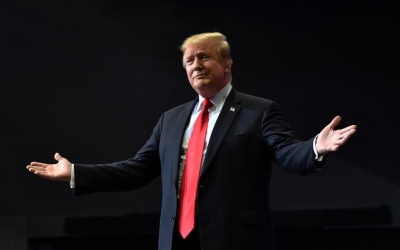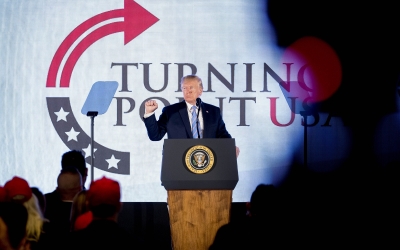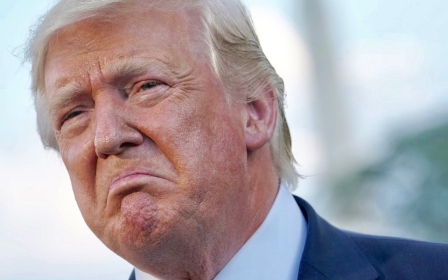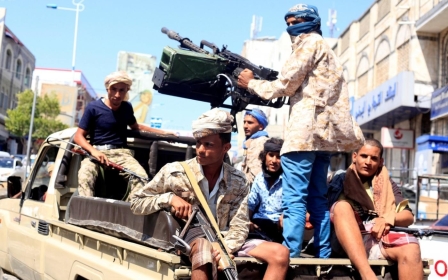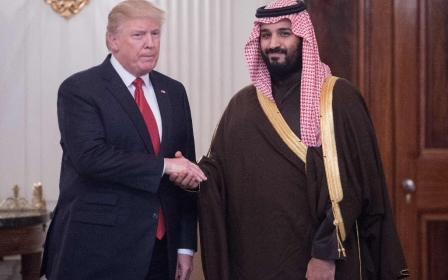'A blank check': Five times Trump defended the Saudi government in 2019
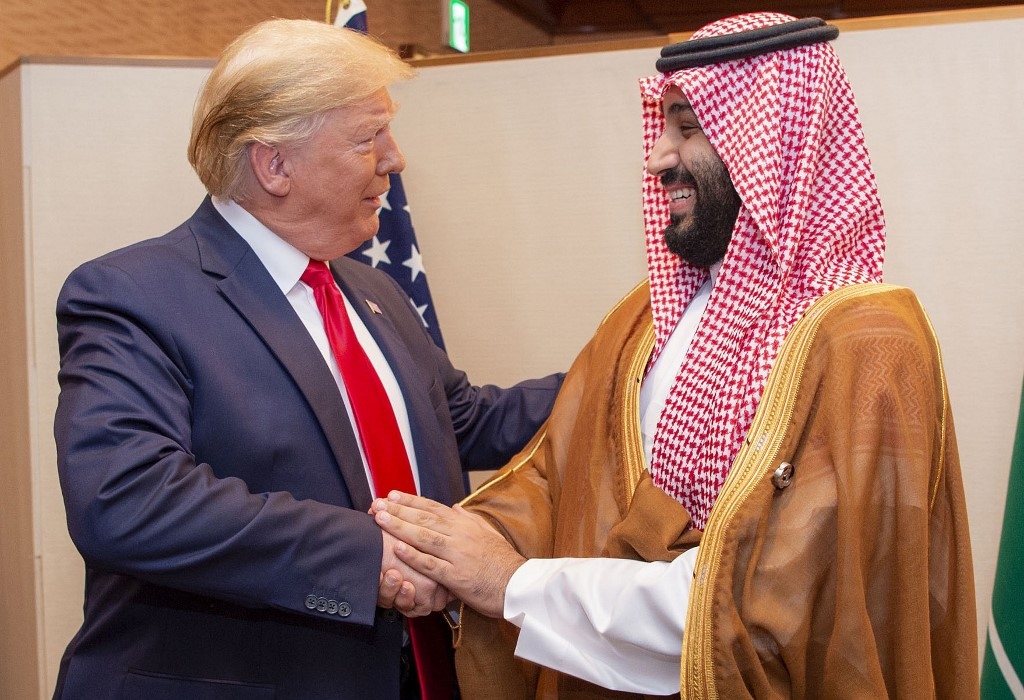
Earlier this month, a campaign spokesman for presidential frontrunner Joe Biden said that the Trump administration had written Saudi Arabia "a blank check to act with impunity around the world".
TJ Ducklo's comments came after US President Donald Trump's lackluster response to a Saudi Air Force officer fatally shooting three people at a military base in Florida on 6 December.
Such criticism has been echoed within the Democratic Party, as top presidential hopefuls have vowed, if elected, to re-evaluate the growing relationship the Trump administration has fostered with Saudi Arabia over the years.
Critics have slammed the US involvement in the Saudi-led war in Yemen and Washington's questionable policies that have increased tensions with Iran to the satisfaction of Tehran's regional rival, Saudi Arabia.
One such policy has been the US withdrawal from a landmark 2015 nuclear deal with Iran and six countries, and its reinstatement of sanctions on the Islamic Republic.
New MEE newsletter: Jerusalem Dispatch
Sign up to get the latest insights and analysis on Israel-Palestine, alongside Turkey Unpacked and other MEE newsletters
As 2019 comes to an end, Middle East Eye takes a look at events that highlight Trump's support for the Saudi government.
Trump vetoes bipartisan resolution against US support for Saudi-led war
On 17 April, Trump vetoed a bipartisan congressional resolution demanding the end of US military support for the war in Yemen led by Saudi Arabia.
The resolution enacted the War Powers Act, which allows it to restrict the president's ability to deploy troops.
It marked the first time both chambers of Congress passed a bill using the act's authority and the second time Trump has used his presidential veto power.
"This resolution is an unnecessary, dangerous attempt to weaken my constitutional authorities, endangering the lives of American citizens and brave service members, both today and in the future," Trump said at the time in a statement.
Trump administration does not include Saudi Arabia on annual child soldier blacklist
The Trump administration on 20 June announced its blacklist of countries recruiting child soldiers. The administration did not include Saudi Arabia on its list, despite recommendations from officials inside the State Department and various human rights groups.
Had Saudi Arabia been included on the list, it would have been barred from receiving US aid, training and weapons, unless the president were to issue a waiver based on "national interest".
"This administration's unequivocal support for Saudi Arabia has meant turning a blind eye to civilian deaths in Yemen, dissidents detained and tortured in Saudi Arabia, and now the use of child soldiers," Andrea Prasow of Human Rights Watch (HRW) said at the time.
"The message is clear that the Trump administration will stand behind political allies no matter how serious their human rights abuses."
Trump blocks three more resolutions that would have stopped arms sales to Saudi Arabia
Trump on 24 July blocked a trio of congressional bills that would have halted more than $8bn in arms sales to Saudi Arabia, the United Arab Emirates (UAE) and Jordan.
The State Department bypassed Congress to push the sales through by declaring an emergency, citing growing tensions with Iran.
Trump, at the time, said blocking the deals would damage "the credibility of the United States as a reliable partner".
"This resolution would weaken America’s global competitiveness and damage the important relationships we share with our allies and partners," he said in a White House statement.
Trump says US 'locked and loaded' but waiting for Saudi's 'terms'
A key oil field in Saudi Arabia was attacked on 14 September. The incident disrupted five percent of the daily global oil supplies, but instead of referring to US intelligence and military leaders, Trump seemed to look to the Saudi government for direction.
Trump said at the time that the US was "locked and loaded", but would wait for Saudi Arabia to instruct the US on how to react.
"Saudi Arabia oil supply was attacked. There is reason to believe that we know the culprit, are locked and loaded depending on verification, but are waiting to hear from the Kingdom as to who they believe was the cause of this attack, and under what terms we would proceed!" Trump wrote on Twitter.
Later, Trump suggested that the US would act as a kind of mercenary force on Riyadh's behalf, implying an exchange: Saudi money for US military action.
"The Saudis are going to have a lot of involvement in this if we decide to do something," Trump said at the time. "They’ll be very much involved. And that includes payment. And they understand that fully.”
Trump does not mention terrorism or promise retribution after Saudi trainee's deadly attack
While Trump has on several occasions demonised Muslims and smeared Islam as a violent religion following militant attacks, he did not mention terrorism after a Saudi Air Force lieutenant fatally shot three people at a military base in Florida early in December.
Even before the name of the suspect was released, the US president conveyed the condolences of Saudi Arabia's King Salman.
In 2016, Trump celebrated "being right on radical Islamic terrorism" after a suspected Islamic State (IS) group sympathiser killed dozens of people at a nightclub in Orlando.
The drastic contrast between the Florida naval base shooting and previous attacks highlights the US president's willingness to moderate his Islamophobic impulses to protect his Saudi allies.
Middle East Eye delivers independent and unrivalled coverage and analysis of the Middle East, North Africa and beyond. To learn more about republishing this content and the associated fees, please fill out this form. More about MEE can be found here.


